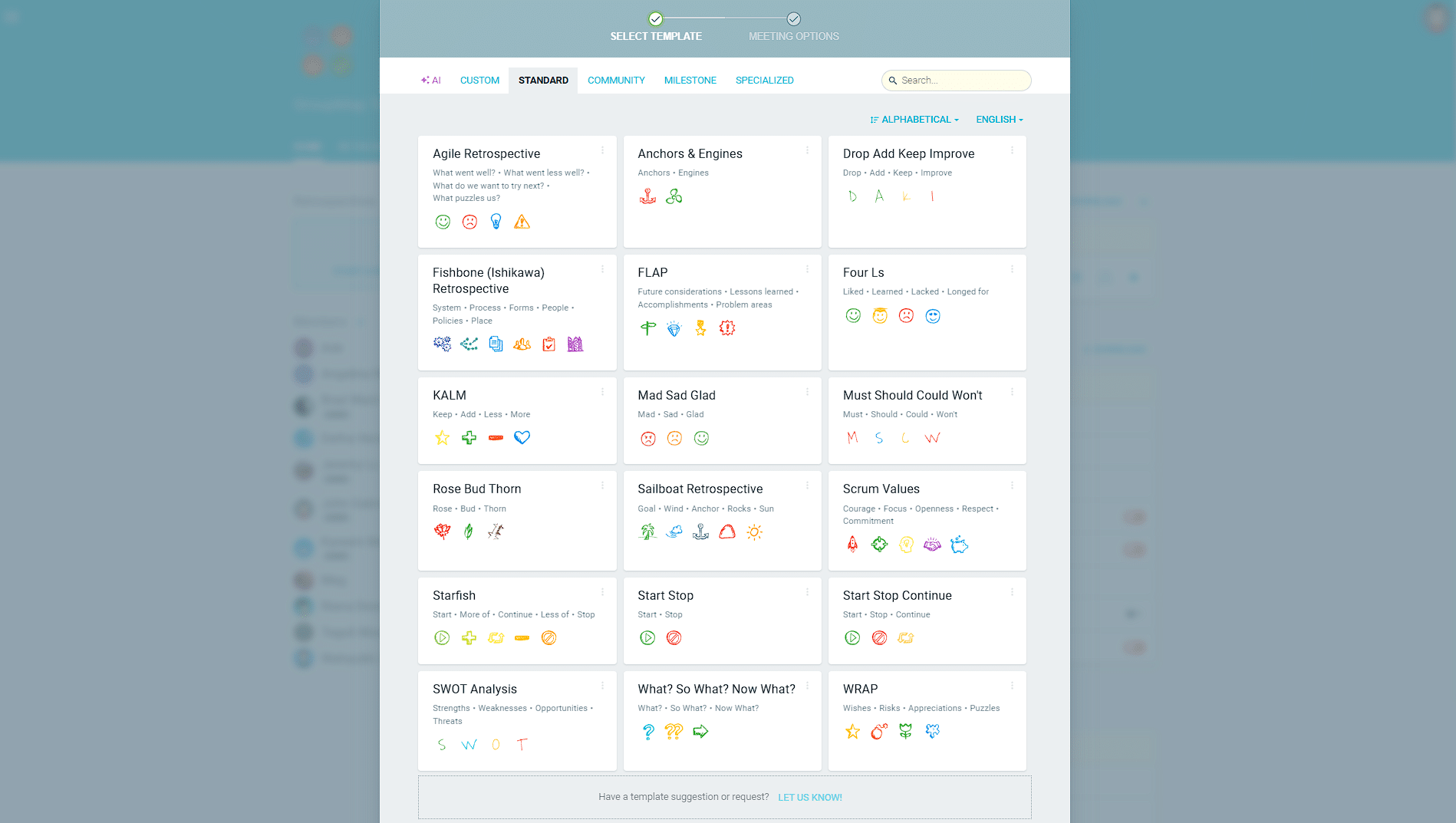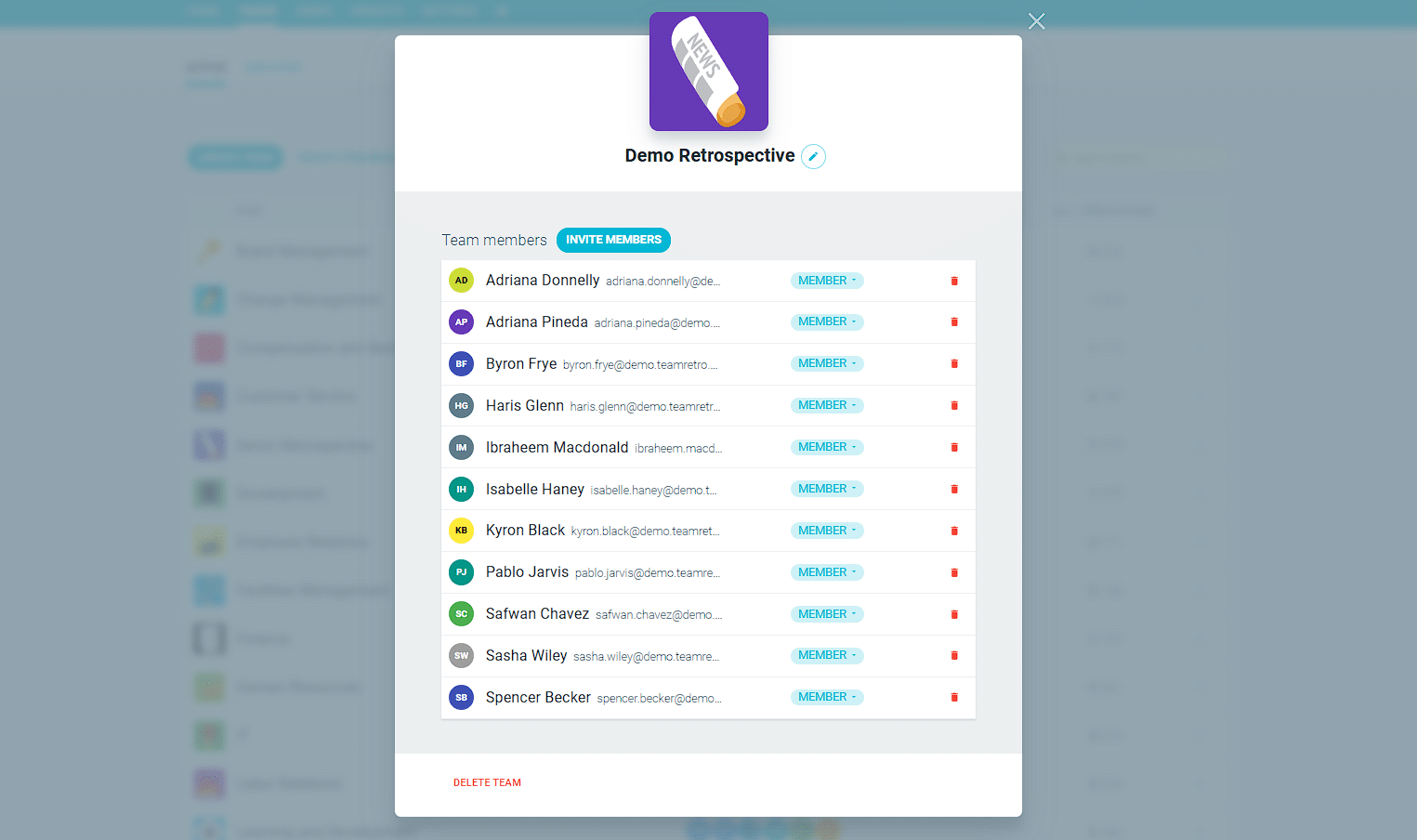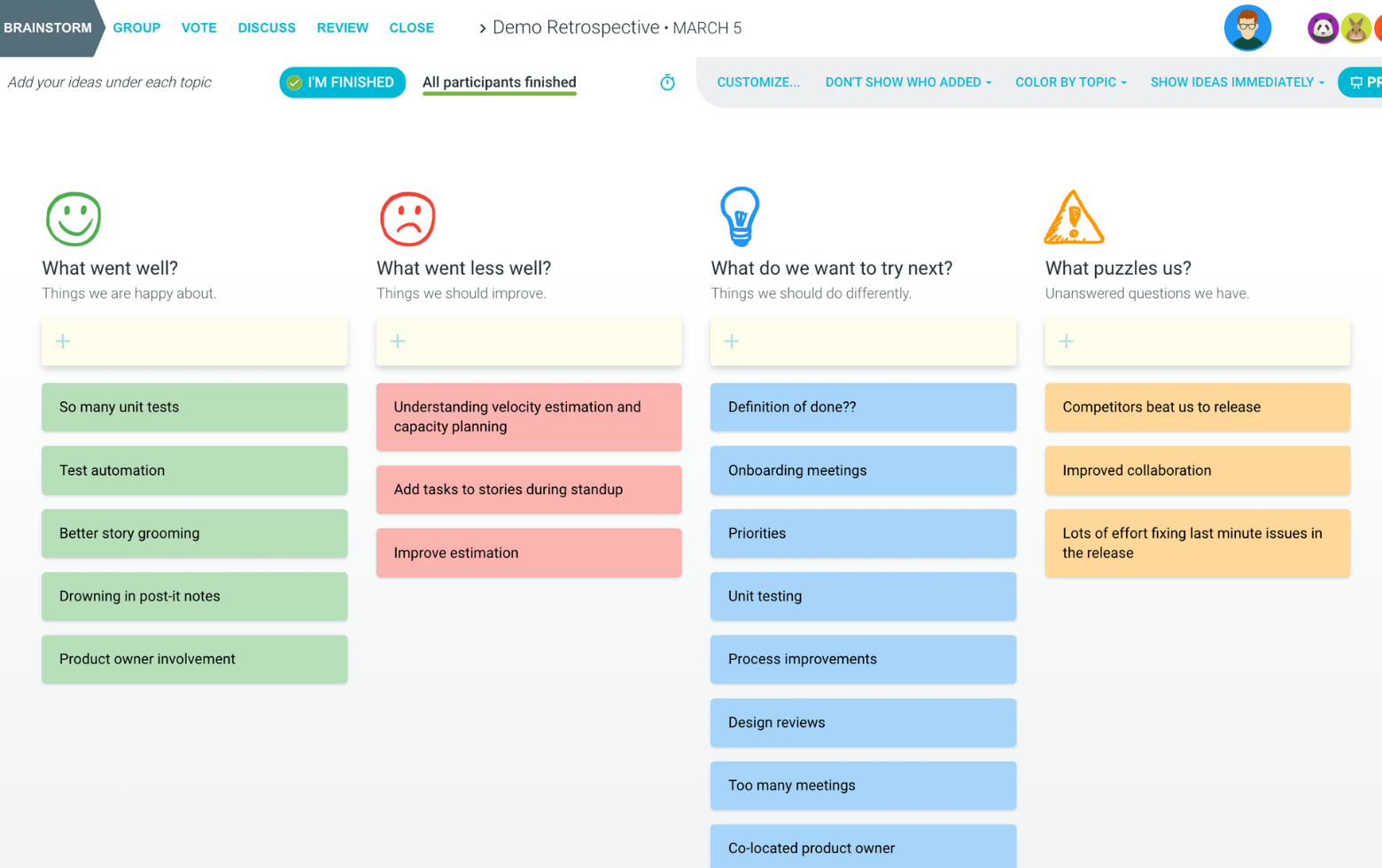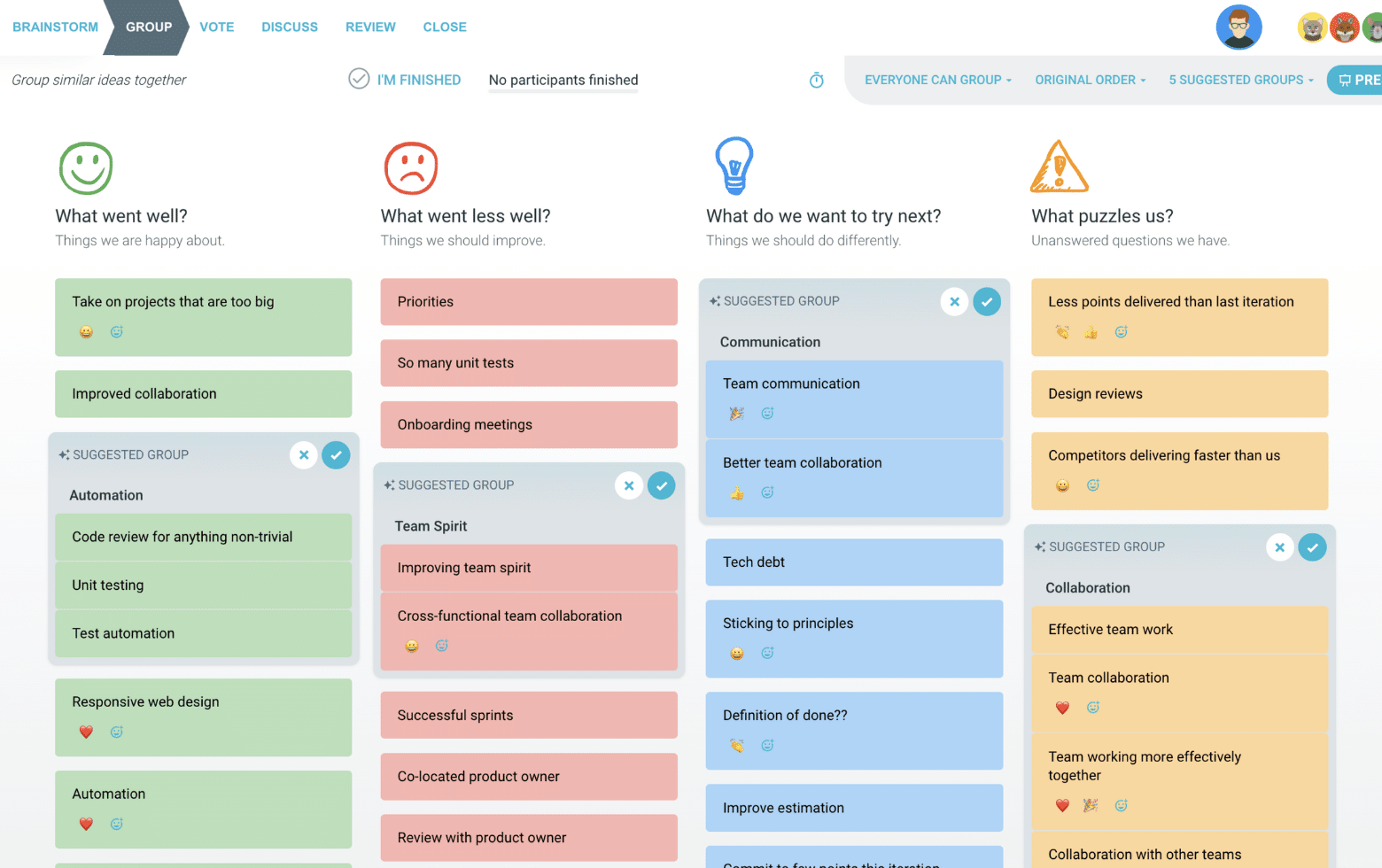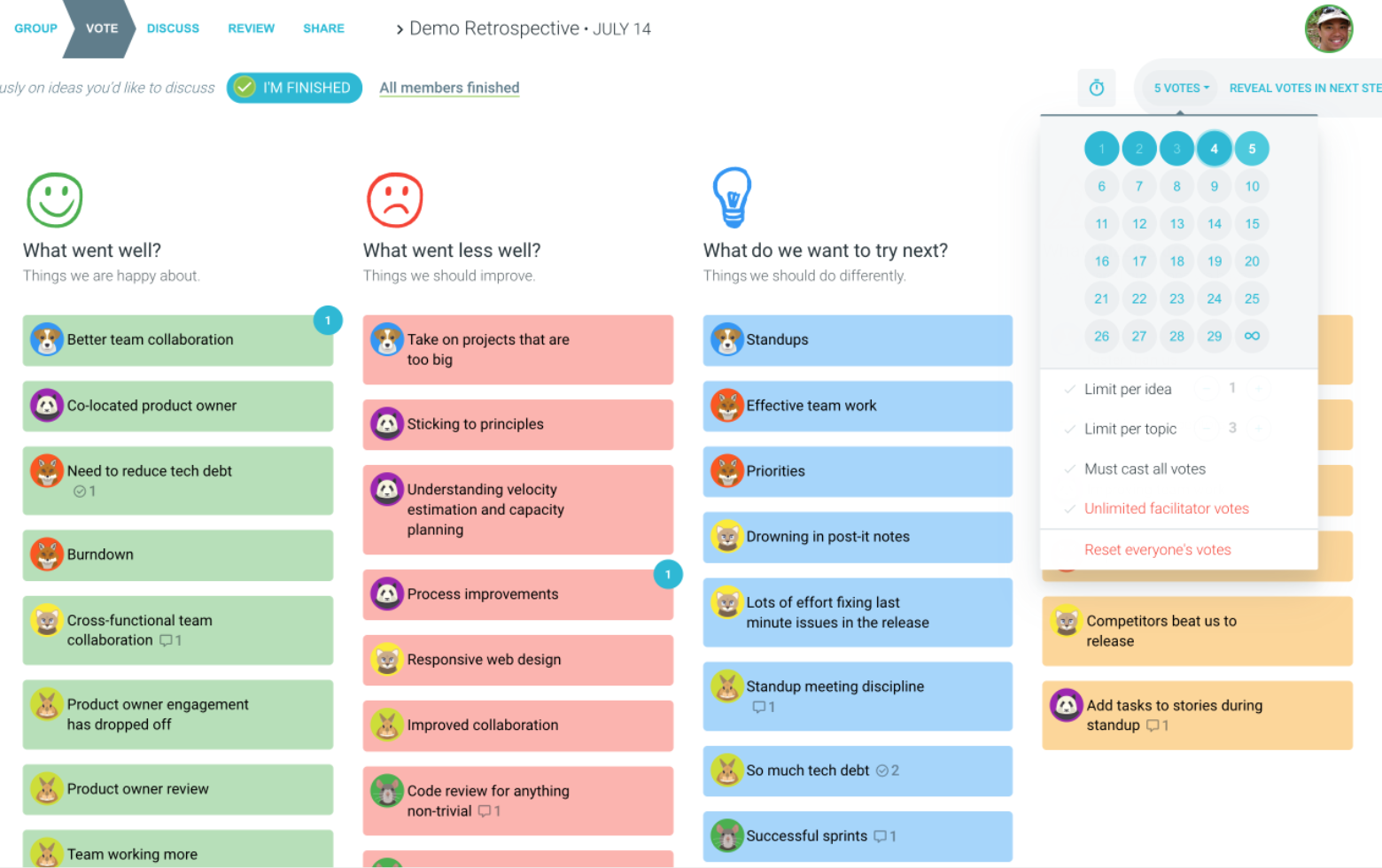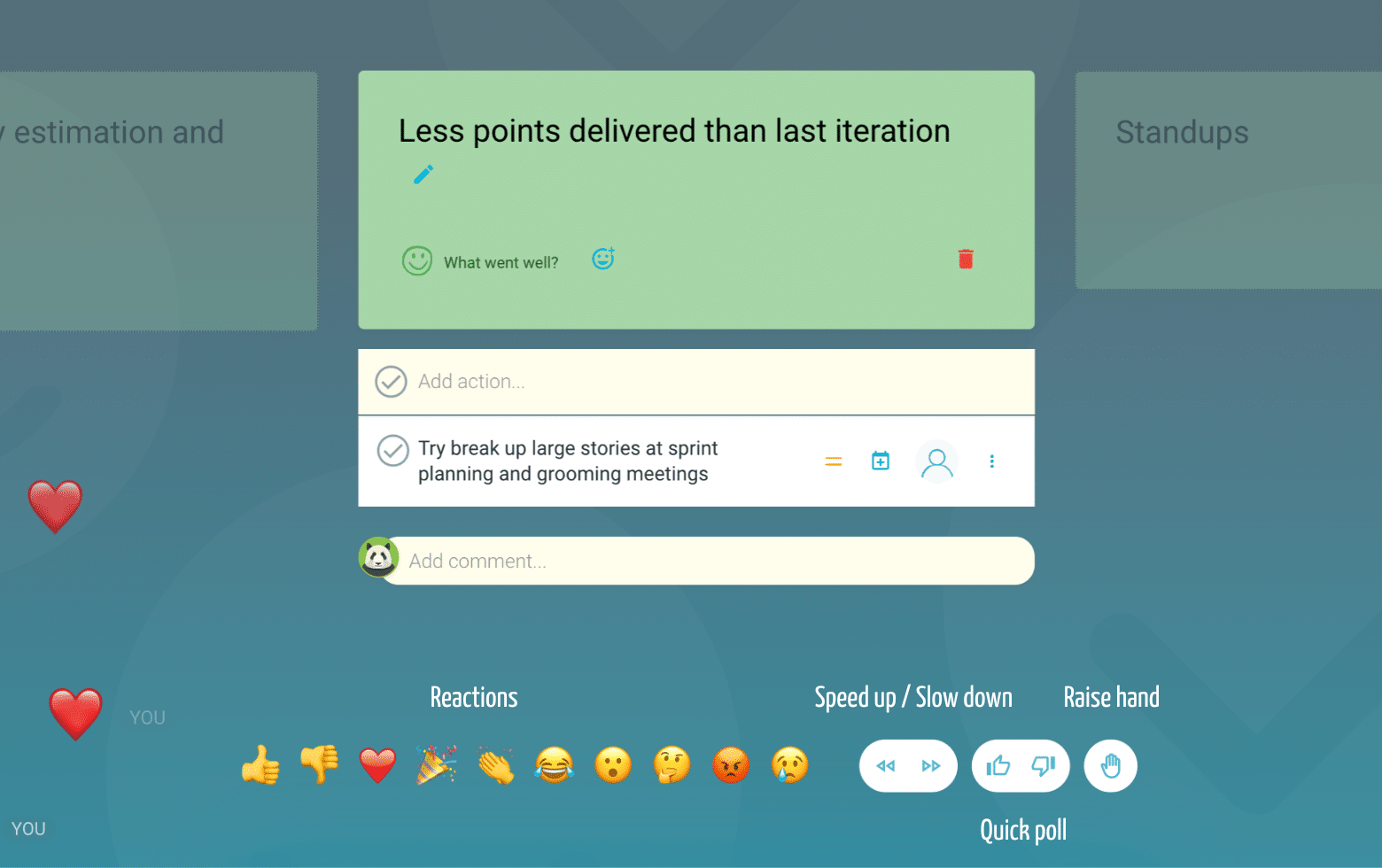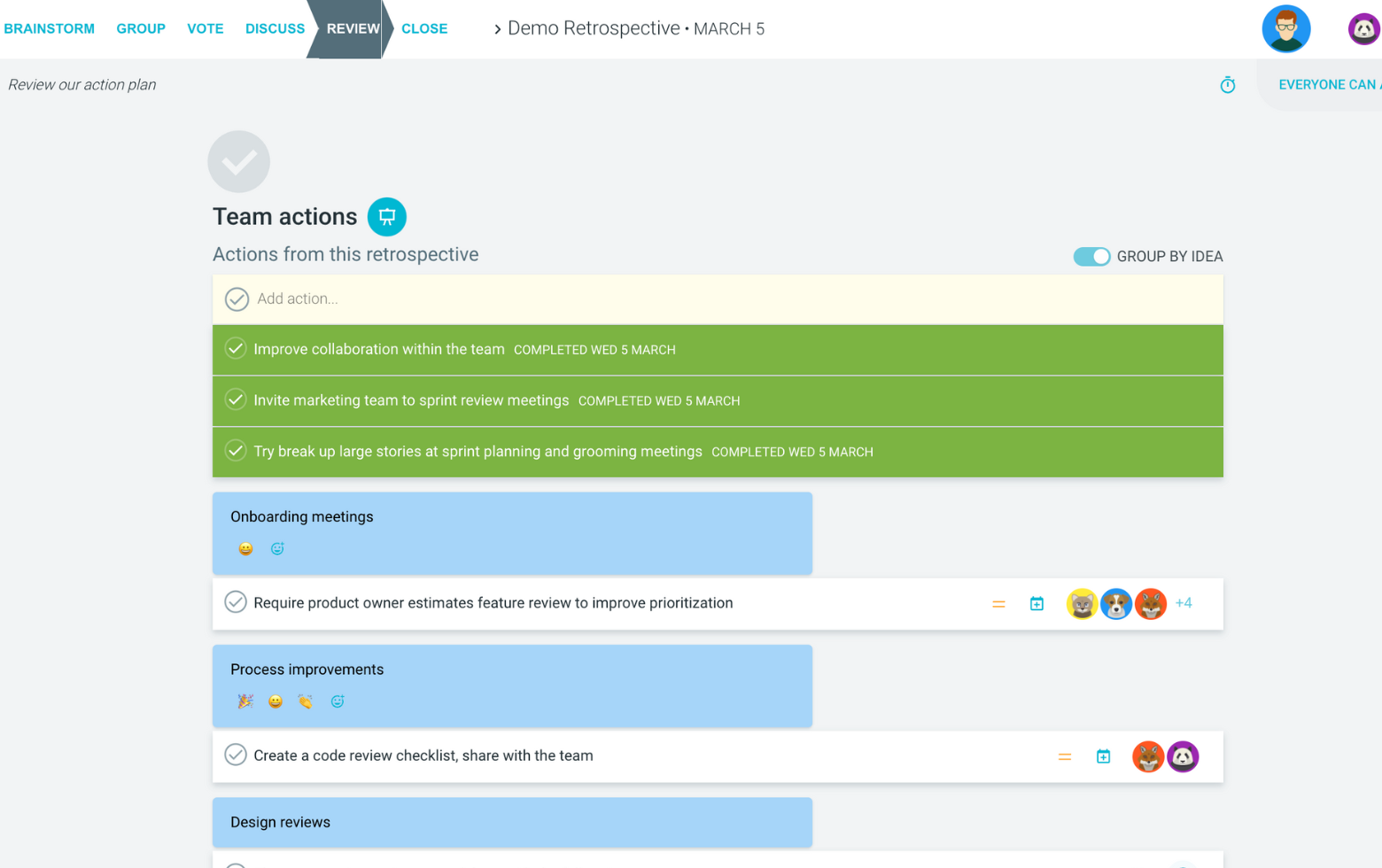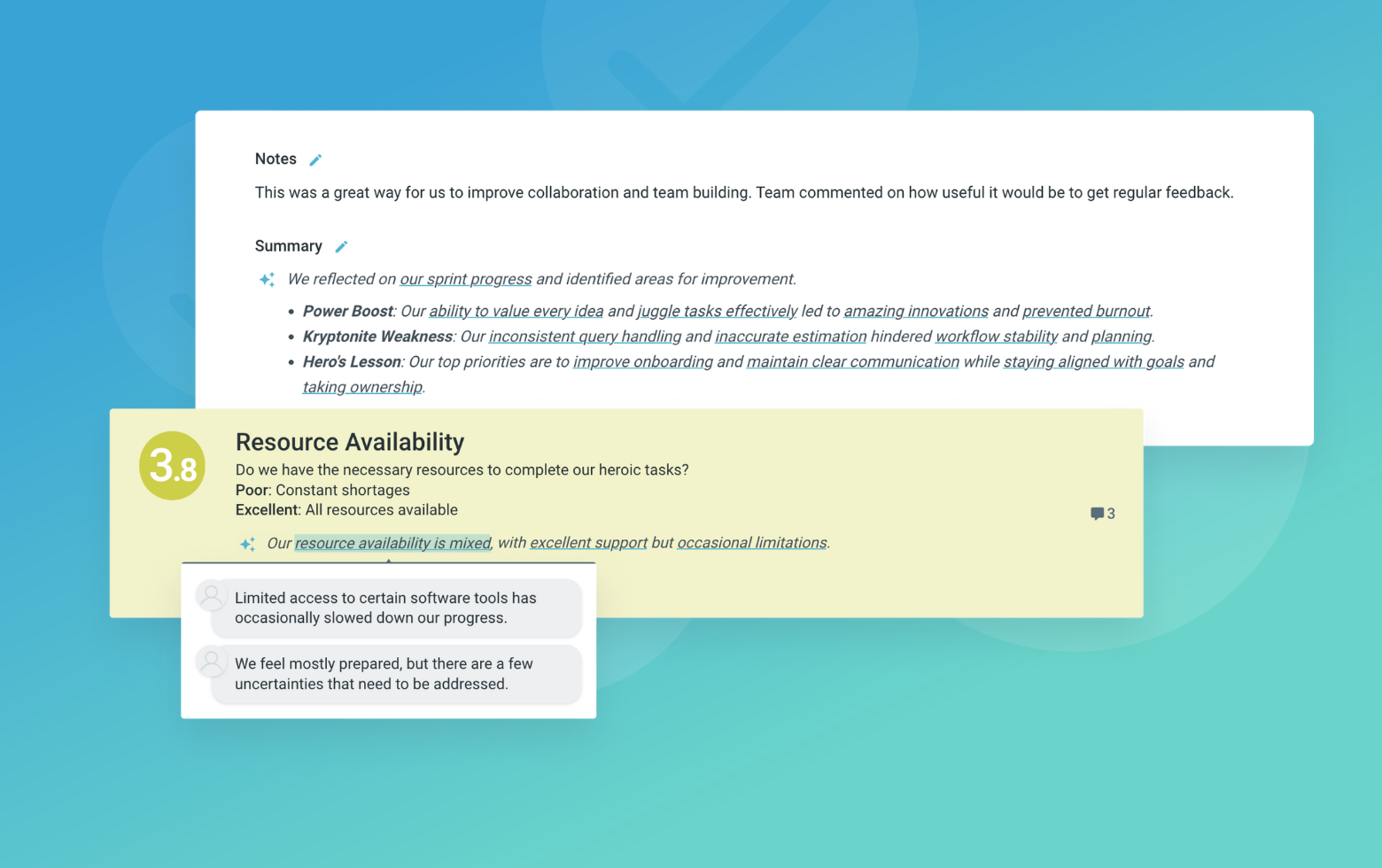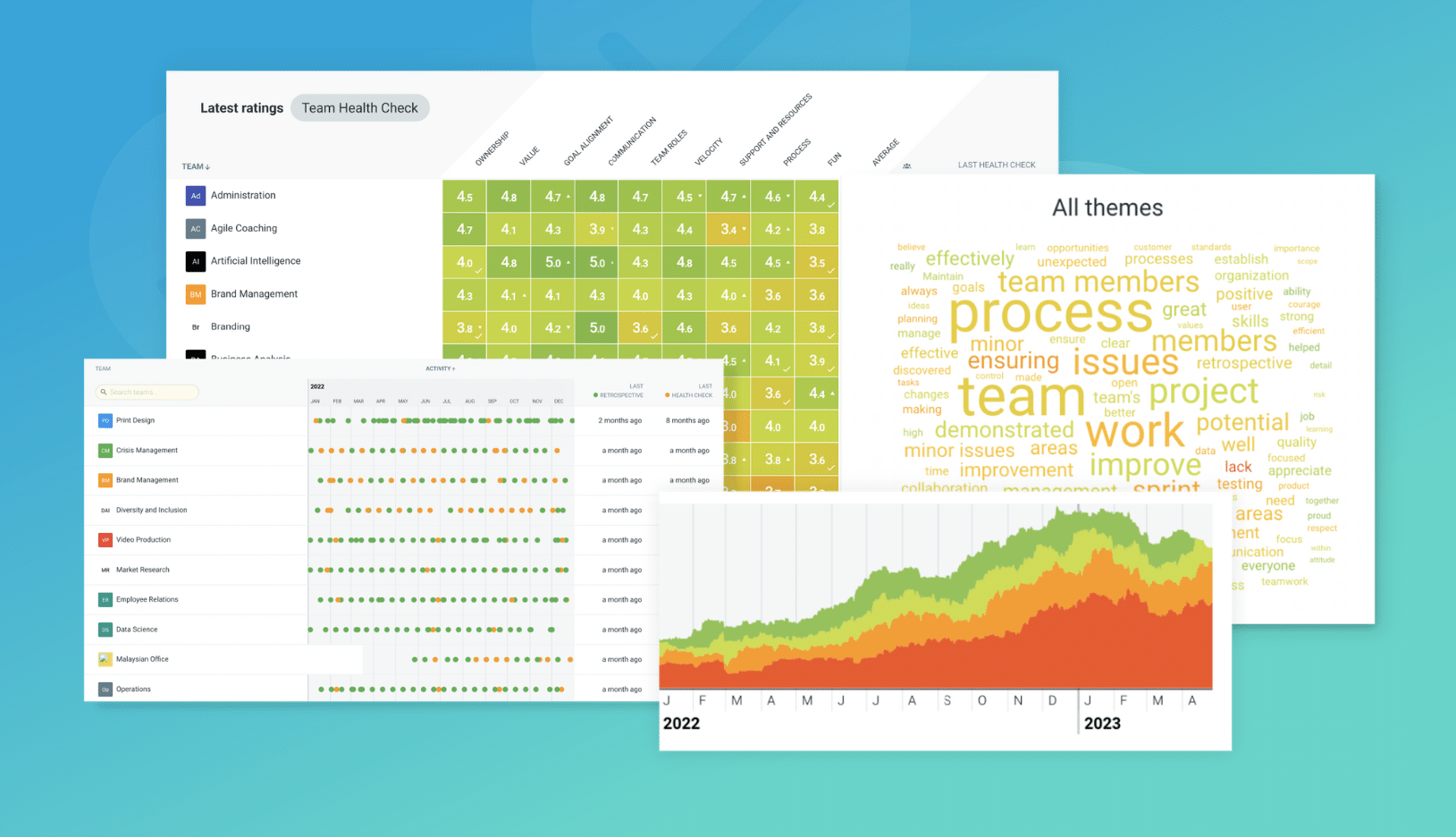The mad sad glad retrospective frames discussion around the emotional journey of by your team during the previous sprint, and is a great way to identify opportunities to improve team morale and job satisfaction. The retrospective asks participants to share what made them feel frustrated or annoyed (mad), disappointed (sad) and what made them feel happy or proud (glad).
This mad sad glad style retrospective encourages your team to be more emotionally-aware to help build a positive team dynamic, and provides an opportunity to reflect on issues and opportunities from a different perspective. It is important you remember the retrospective prime directive and focus on events, behaviours and processes – not on assigning blame or ‘guilting’ individuals.
By regularly conducting Mad Sad Glad retrospectives, teams can continuously improve, build trust, and maintain a healthy team dynamic focused on growth.
What is The Mad Sad Glad Retrospective
Mad
What is driving you crazy?
The 'Mad' section allows team members to vent frustrations in a constructive way. As the facilitator, create a safe space for open and honest discussion, without judgment. Remind participants to discuss issues objectively, focusing on processes and events rather than individuals. Capture key points and look for patterns or root causes behind the frustrations.
Sad
What is disappointing you?
The 'Sad' section allows participants to share their disappointments, whether related to the team, processes, or outcomes. Encourage team members to be vulnerable and share their genuine feelings. Look for opportunities to improve team dynamics, communication, or processes based on the disappointments raised.
Glad
What is making you happy?
The 'Glad' section is an opportunity to celebrate wins, successes, and positive experiences from the recent sprint or project. Encourage participants to share specific examples and call out individuals or the entire team for exceptional work. This helps boost morale and reinforces positive behaviors and practices.
Suggested icebreaker questions
- If you could add one 'rule' that everyone had to follow, what would it be?
- What's the most 'mad', 'sad', or 'glad' movie you've seen recently?
Ideas and tips for your retrospective meeting
- Set a positive tone and create a safe, judgment-free environment for open and honest discussion.
- Encourage participation from all team members, including introverts and new hires.
- Look for patterns and root causes behind frustrations or disappointments raised.
- Avoid getting defensive or making excuses - focus on understanding different perspectives.
- Capture key points and action items, but don't try to solve every issue during the retrospective.
- End on a positive note by discussing 'Glad' items and recognizing exceptional work.
.
How to run effective meetings with TeamRetro
Start Your Session in a Click
Log into TeamRetro and choose your template. Customise questions and the workflow to create your perfect retro for your team.
Create Your Team Easily – No Separate Accounts Needed
Brainstorm Individually – Free From Bias
Smart Grouping for Faster Insights
Fair, Flexible, and Fast Voting
Engage, React, and Capture Key Insights
Walk your team through ideas one by one with Presentation Mode. Stay in sync, spark real-time discussions, and capture feedback with comments, live reactions, and polls—all in one place.
Turn Ideas Into Action
Propose next steps with team buy-in, get AI-powered action suggestions, and keep everything in one place. Committed actions sync to your personal dashboard and integrate with your workflow tools—keeping you on track.
Save, Share, and Stay on Track
Get quick AI-powered summaries, add facilitator notes, and store retrospectives in your library for easy access. Schedule your next session and track published actions to keep your team accountable at the next retro.
Turn Team Data into Actionable Insights
Uncover trends, common themes, and key engagement metrics at a glance. Track sentiment shifts, analyze conversations, and monitor completed actions to drive continuous improvement.
